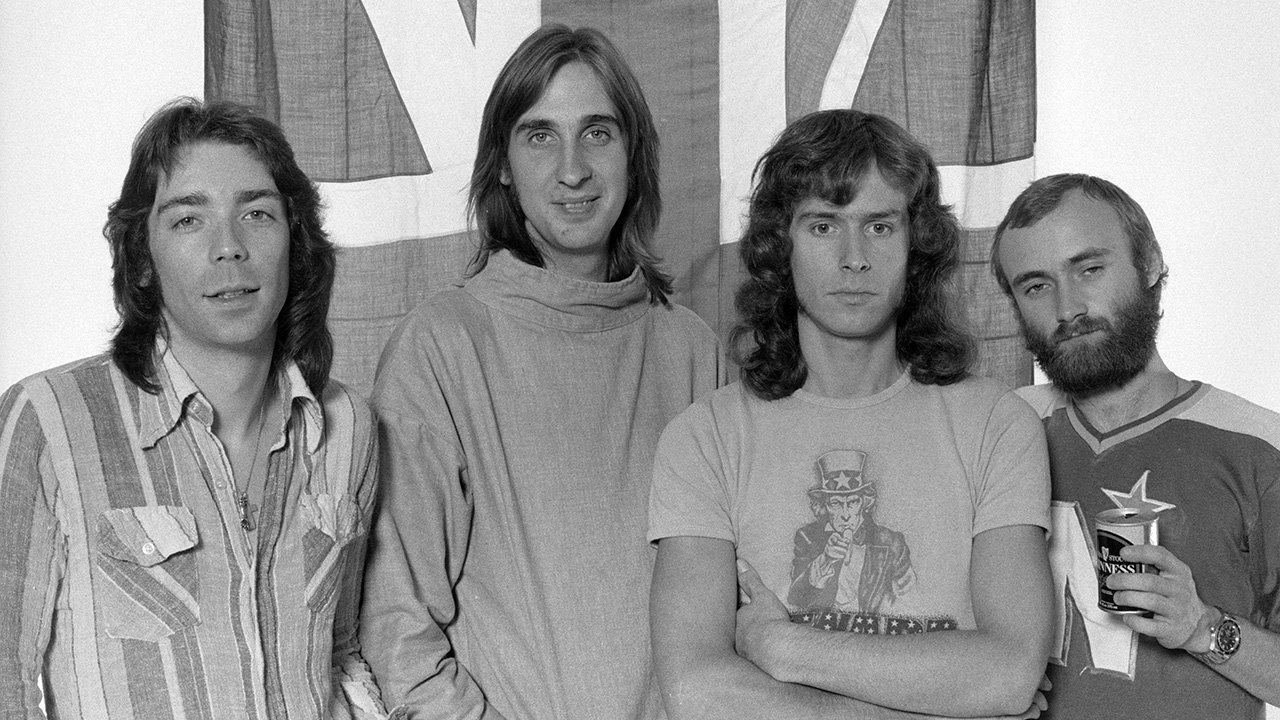Genesis released what’s often regarded as their proggiest album in the form of Wind & Wuthering in 1976. They delivered their first EP, Spot The Pigeon, the following year, based on material left over from the album. In 2017 Prog looked back on the problematic three-track disc, and the reason it remains largely forgotten.
In May 1977, just in time for the Queen’s silver jubilee, a three-track EP release contained a song that incited kicking a football referee to death; a number that contained a four-letter word in its opening lines; and finally, a track alluding to sexual assault. But this wasn’t one of those newfangled punk waxings. it was by none other than Genesis, who seemed to have followed Wind & Wuthering – their most autumnal album – with a short, sharp, aggressive spring.
The Spot The Pigeon EP marked Steve Hackett’s final studio appearance with the group, and was comprised of the tracks recorded with co-producer David Hentschel at Relight Studios that did not fit with the melancholy sweep of their parent album.
The EP is a problematic release in the Genesis catalogue: despite giving them their first Top 20 UK singles chart hit, it’s often entirely disregarded. That is, of course, largely due to its lead track Match Of The Day, a slice of terrace commentary from a band more associated with croquet than soccer.
Despite their dislike of the track and its at times cringeworthy lyrics, it’s a fabulous time capsule of what association football used to be like in the UK. it came with a video filmed at Loftus Road, Queens Park Rangers’ ground. “We never felt that Match Of The Day was very good, any of us,” keyboardist Tony Banks sighs. “I quite like the riff in the middle, but the rest I could really live without.”
The simple, shuffling Pigeons that completes the first side is also anachronistic. It opens by positing the question, ‘Who put 50 tons of shit on the Foreign Office roof?’ Mike Rutherford’s lyrics could be read as an allegory about punks (the pigeons) moving in and the old guard (the civil servants) trying to defend their ground.
“It was a lot of fun as it was so different,” Banks says. “The idea of doing a whole song around one note was something that i had wanted to do for a long time, changing the chords underneath it.”
The single’s flipside was rooted in more conventional territory: Inside And Out is the most serious contender for the track that should have been on Wind & Wuthering. With lyrics by Hackett, it concerns “someone who’s been wrongfully imprisoned and so, like Blood On The Rooftops, there’s an aspect of social comment,” he says.
The first part (Inside) talks about the protagonist’s conviction. the second (Out) is a wild-blowing jam to symbolise their freedom. Banks liked it too, and it was played on the band’s 1977 tour. “The first part, I think, is a better song than Your Own Special Way, and the second is an exciting piece of music. Both Steve and I were going quite eccentric with the solos.”
Spot The Pigeon reached No.14 in the UK chart, setting Genesis up for their Top 10 placing the following year with Follow you, Follow Me. It was reissued on CD in 1986, and as a blue vinyl 12" Record Store Day single in 2012.

